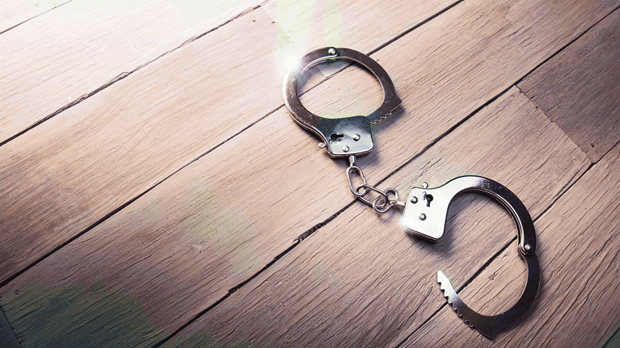Choosing Justice

As I sit on my cozy couch, warm cup of coffee in hand, autumn sun streaming through my windows, my fluffy dog snoozing next to me, I find myself wrestling to hold two realities in tension.
One: gratitude. I am so deeply grateful for the gifts that surround and fill my life. The gift of my husband and children, the gift of warm sun, the gift of our home, the gift of getting to write, and, yes, the gift of coffee. Very good coffee.
Two: suffering. I am so deeply aware that suffering pervades our lives and our whole world, in measures beyond what most of us can even begin to describe. There is suffering we experience firsthand, and there is suffering that affects millions of people in ways beyond comprehension.
Gratitude and suffering. Blessing and pain. Sun and darkness. All mysteriously inextricable.
The Distance
There’s a little girl in Mumbai, India, who just saw and felt the sun for the first time in three months. She was trapped in a hidden crawlspace behind a plaster wall. The tiny space was hardly large enough for one girl, yet it held and hid six girls, crammed together. The space opened into a larger room, also completely hidden. This larger room was used for “conditioning” the girls, for breaking them down. It was a room where they were routinely beaten and raped, broken into chattel for sex in order to be sold on the black market of human trafficking.
There are about 30 million people in our world today who live as the property of other human beings. Thirty million people living as slaves, beaten and forced to labor for a profit they will never see.
But this little girl in Mumbai—she is no longer a slave. She now sees the sun. The same sun that streams through my Minnesota window this morning is shining on her as it sets this evening in India.
This little girl has known pain and suffering beyond what I could ever even begin to imagine. And yet now she also knows freedom. Now she knows the beginning of what healing can become.
Sanjay Macwan leads the work of International Justice Mission in Mumbai, and he led an operation with the local Mumbai police to rescue the six girls trapped in this windowless dungeon. The scourge of slavery, the industry of rape for profit—Sanjay has seen these conditions in so many different forms over and over and over again. And yet the reality of the suffering he witnesses never ceases to take his breath away.
As these girls were being rescued, Sanjay was amazed at how quickly their tears turned to smiles once they knew they were truly safe from harm. As he reflected on this rescue, he shared an insight that I’m determined to carry with me into each new day ahead: “Perhaps the distance between tears and smiles is freedom.”
What Can I Do?
When I first began to learn of the reality of slavery in our world today—of the millions of women, men, and children who have no freedom, who live in a nightmare of violence wielded by their slave owner—I couldn’t shake the sense that there was something God was calling me to do. And yet, I was stumped. What could I possibly do?
With marriage and motherhood the tension has only grown stronger. How do I love God, love my husband, raise our children, and be part of God’s call, as Isaiah puts it, to “seek justice, help the oppressed, defend the cause of orphans, and fight for the rights of widows” (Isaiah 1:17)?
I’ve come to learn there’s actually quite a lot any of us can do. And at the same time, we really can’t do anything unless we start with Jesus. As International Justice Mission founder Gary Haugen teaches, justice is a fruit of our formation in Jesus Christ. Justice flows from our lives as we pursue Jesus and open our eyes and hearts to all he shows us along the way.
Jesus Christ is the chief rescuer. God rescues from spiritual slavery, God rescues from physical slavery, and God invites us to join him. He beckons us. He woos us, because he knows there is inexplicable joy to be found as we follow him into the work of bringing freedom and justice.
The work of the church, of the gospel—it’s all of this: spiritual reconciliation with God; physical rescue, healing and restoration; God, through his people, alive and working in the world. As Mark Labberton teaches in his beautiful new book Called, our calling, above all, is to follow Jesus, and the work of justice, healing, and restoration is at the very heart of so much of what Jesus is up to in our world.
What freedom has God given you today? What gifts has he lavished on you—of any size—perhaps even in the midst of struggle? As we look at the overwhelming needs of the world, let’s begin by thanking God for his invitation to join him, confess that we don’t even know where to start, and then step forward in faith that God can—and will—take our offering of gratitude and use us to bring blessing for others—blessing that brings the blazing sun of rescue, of freedom.
8 Ways to Be Intentional about Justice Now
First, don’t launch out alone! Ask God to help you find a friend to walk with in this journey. God calls us to serve him in community—he will be faithful to provide.
Here are eight ways to kick-start your journey together.
1. Pray. Let’s be honest—most of us assume we’re already doing this. We prefer not be told prayer is a way we can fight injustice in the world. It can be a cop-out and we’d prefer something a bit more tangible. But I’m putting this first on the list because I’ve come to believe with every fiber of my being that prayer is the most powerful gift God has given us in the face of injustice. Prayer is also the only way we will be sustained in our passion as we move into very dark and overwhelming realities of pain and suffering. Prayer is God’s invitation to us to constantly connect with him, to be filled by his strength, to see with his eyes, to love with his love. Prayer transforms us as prayer transforms the world. I’ve written about some specific prayer practices in a mini-book call Deepening the Soul for Justice—I hope it might encourage you as you step out.
2. Study the Bible. Tackle one book of the Bible and find every mention of the words justice, freedom, and slavery. Write down what these words mean in each passage and use study tools (such as online commentaries) to find out the wider context for God’s call to justice in that book. You might want to start with one of the following: Psalms, Isaiah, Micah, Luke, and Galatians. There are also encouraging Bible study groups and resources online that often look deeply into biblical justice. For example, check out SheReadsTruth.com.
3. Identify justice-oriented organizations you can learn from. Ideally pick one that is focused on injustice issues “close to home” (wherever that may be for you) and one focused on injustice issues in a different hemisphere from where you live. Start with their websites, contact ministry representatives to ask questions, invite a speaker to your church, and consider an on-site visit.
4. Take stock of the justice needs in your own community. Use a free resource like The Community Justice Assessment Tool (see ijm.org/resources) and discover how to see injustice around you. Learn how to talk with and encourage law enforcement, social workers, and other justice professionals in your town.
5. Share stories with your friends, coworkers, neighbors, and kids about people suffering injustice. Share stats, but go beyond just stats—share names, show pictures and videos, and share stories of hope, stories of rescue. Powerful stories can be found on IJM.org as well as a video interview (on YouTube) about the recent rescue of girls in Mumbai.
6. Host an event in your home, or join up with someone else who loves to host events in their home. Show a feature-length documentary on modern-day slavery or show a sampling of shorter YouTube clips that educate about slavery and other forms of violence against the poor. Use the evening to creatively focus on one issue, one country, or one city, and raise funds to give to an organization doing exceptional work. Check out NoondayCollection.com for ideas and stories for gathering women together for a fashion-oriented fundraiser.
7. Join an advocacy group in your city, or start one of your own. Consider these great examples: The Richmond Justice Initiative, IJM Advocacy teams (in each state—check www.ijm.org or Facebook to join), and A Teams with www.theA21campaign.org.
8. Read all you can! Thankfully, there are some great books filled with biblical teaching on justice and practical action ideas. Here’s a sampling:
The Just Church by Jim Martin Good News About Injustice and Just Courage by Gary Haugen Generous Justice by Tim Keller The Dangerous Act of Worship and The Dangerous Act of Loving Your Neighbor by Mark Labberton Undaunted and Unstoppable by Christine Caine Overrated by Eugene Cho Kingdom Calling by Amy Sherman Refuse to Do Nothing by Kimberly McOwen Yim and Shayne Moore The Spiritual Danger of Doing Good by Peter Greer The World Is Not Ours to Save by Tyler Wigg-Stevenson
Are you wondering, like I did, What can I do? In your normal, everyday life, you can make a difference as you make intentional choices to combat injustice.
Bethany Hanke Hoang is a TCW advisor and the author of the books Deepening the Soul for Justice and The Justice Calling: Where Passion Meets Perseverance (coming Spring 2015). She is Founding Director and Special Advisor for the IJM Institute for Biblical Justice.
Read more articles that highlight writing by Christian women at ChristianityToday.com/Women
 Read These Next
Read These Next


 Pampering with a PurposeHow hairstylists are bringing their talents—and the Truth—to people in need.
Pampering with a PurposeHow hairstylists are bringing their talents—and the Truth—to people in need.
 When He Has the HeadacheHow to navigate diverse sex drives in marriage
When He Has the HeadacheHow to navigate diverse sex drives in marriage








 Homepage
Homepage
